实验三
实验一源代码
#include <stdio.h> #include <stdlib.h> #include <time.h> #include <windows.h> #define N 80 void print_text(int line, int col, char text[]); void print_spaces(int n); void print_blank_lines(int n); int main() { int line, col, i; char text[N] = "hi, November~"; srand(time(0)); for(i = 1; i <= 10; ++i) { line = rand() % 25; col = rand() % 80; print_text(line, col, text); Sleep(1000); } return 0; } void print_spaces(int n) { int i; for(i = 1; i <= n; ++i) printf(" "); } void print_blank_lines(int n) { int i; for(i = 1; i <= n; ++i) printf("\n"); } void print_text(int line, int col, char text[]) { print_blank_lines(line-1); print_spaces(col-1); printf("%s", text); }
实验一运行结果

使其生成随机位置输出文本,同时每十秒输出一次,形成动画效果
实验二源代码
#include <stdio.h> long long fac(int n); // 函数声明 int main() { int i, n; printf("Enter n: "); scanf("%d", &n); for (i = 1; i <= n; ++i) printf("%d! = %lld\n", i, fac(i)); return 0; } // 函数定义 long long fac(int n) { static long long p = 1; p = p * n; return p; }
实验二运行结果
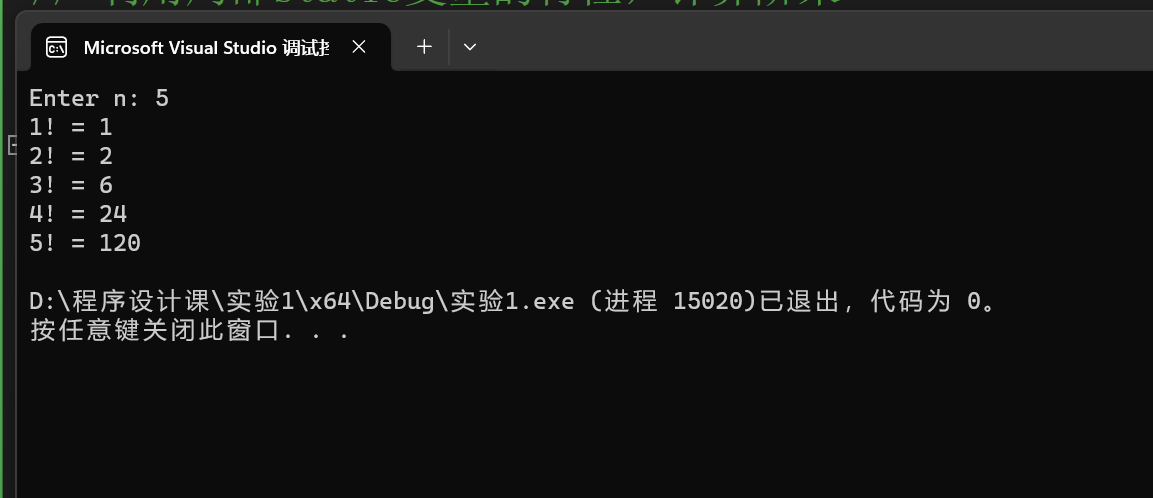
实验2.2源代码
#include <stdio.h> int func(int, int); // 函数声明 int main() { int k = 4, m = 1, p1, p2; p1 = func(k, m); // 函数调用 p2 = func(k, m); // 函数调用 printf("%d, %d\n", p1, p2); return 0; } // 函数定义 int func(int a, int b) { static int m = 0, i = 2; i += m + 1; m = i + a + b; return m; }
实验2.2运行结果
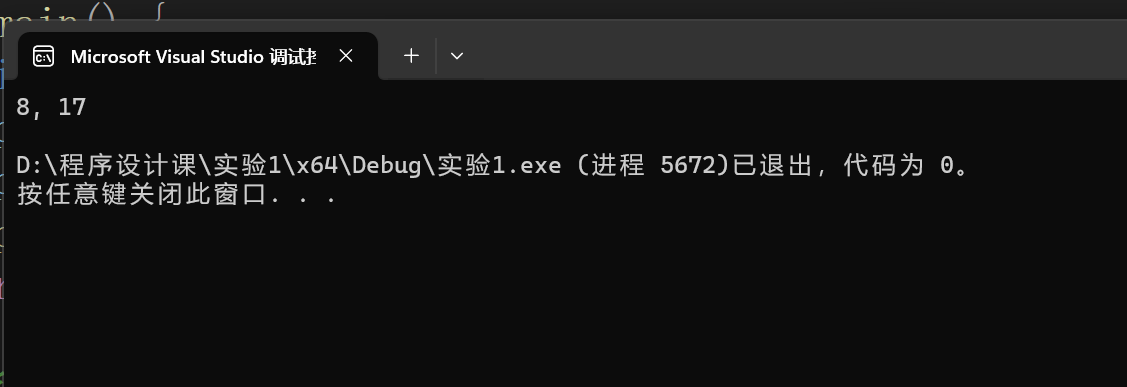
实验三源代码
#include <stdio.h> long long func(int n); int main() { int n; long long f; while (scanf("%d", &n) != EOF) { f = func(n); printf("n = %d, f = %lld\n", n, f); } return 0; } long long func(int n) { if (n == 0) { return 0; } else { return 2 * func(n - 1) + 1; } }
实验三运行结果
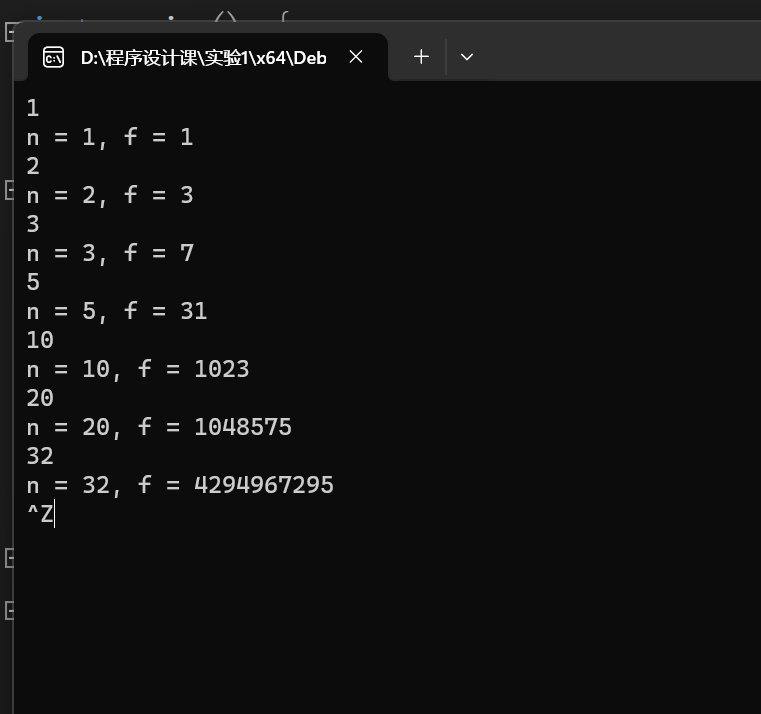
实验四源代码
#include <stdio.h> int func(int n, int m); int main() { int n, m; while(scanf("%d%d", &n, &m) != EOF) printf("n = %d, m = %d, ans = %d\n", n, m, func(n, m)); return 0; } int func(int n,int m) { int ret = 1; int i; for (i = 1; i <= n; i++) ret = ret * (m - i + 1) / i; return ret; }
实验四运行结果
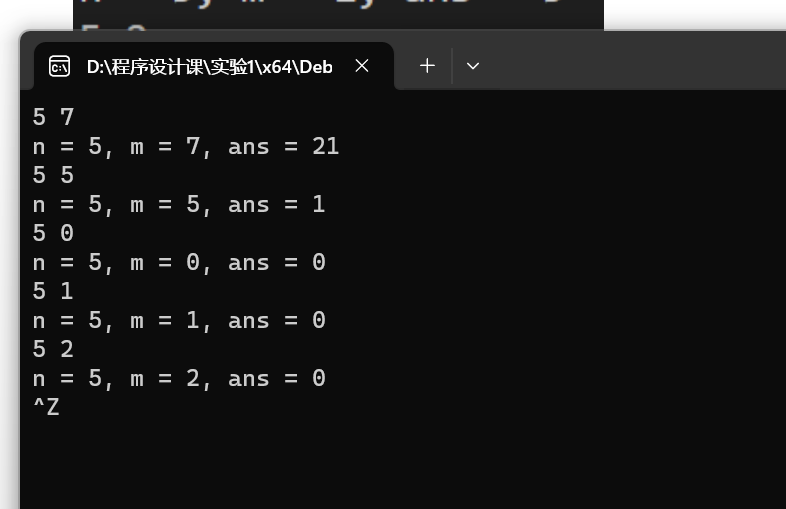
实验五源代码
#include<stdio.h> int i = 0; void hanoi(int n, char from, char temp, char to); void moveplate(int n, char from, char to); int main() { unsigned int n; while (scanf("%u", &n) != EOF) { i = 0; hanoi(n, 'A', 'B', 'C'); printf("共移动了%d次\n", i); } return 0; } void hanoi(int n, char from, char temp, char to) { if (n == 1) moveplate(n, from, to); else { hanoi(n - 1, from, to, temp); moveplate(n, from, to); hanoi(n - 1, temp, from, to); } } void moveplate(int n, char from, char to) { i++; printf("%u:%c-->%c\n", n, from, to); }
实验五运行结果
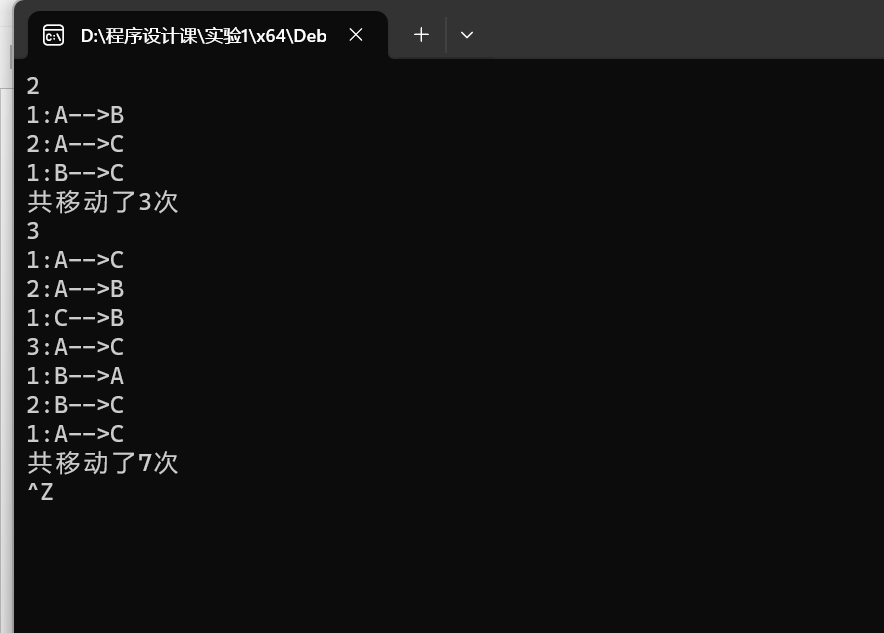
实验六源代码
#include <stdio.h> #include <math.h> long func(long s); // 函数声明 int main() { long s, t; printf("Enter a number: "); while (scanf("%ld", &s) != EOF) { t = func(s); printf("new number is: %ld\n\n", t); printf("Enter a number: "); } return 0; } long func(long s) { long n = 0; long p = 1; while (s > 0) { long d = s % 10; if (d % 2 == 1) { n += d * p; p *= 10; } s /= 10; } return n; }
实验六运行结果
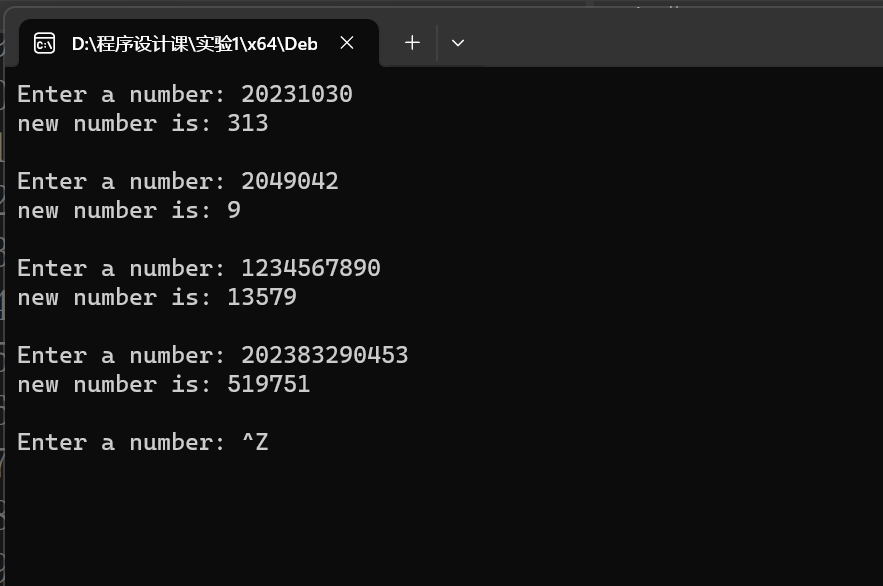




 浙公网安备 33010602011771号
浙公网安备 33010602011771号